Blog • Published on:December 17, 2024 | Updated on:February 5, 2025 • 8 Min
Top 10 Richest Cities in the World
In a rapidly changing world, global cities continue to define wealth and economic power, attracting the ultra-rich, investors, and visionaries. Understanding which cities hold the most private wealth and attract the highest number of High-Net-Worth Individuals (HNWIs) can offer unique insights into economic growth and lucrative opportunities for investment, residency, and citizenship. Here, we explore the top 10 richest cities in the world for 2025.
Understanding Private Wealth Concentration in Global Cities
The world's wealthiest cities are more than financial powerhouses; they are private wealth hubs, innovation leaders, and key centers for real estate, technology, and luxury markets. These cities concentrate immense private wealth, driven by strong economies, favorable business environments, and world-class infrastructure.
Private wealth concentration, defined by the number of HNWIs and total investable assets, reflects the economic success and appeal of these global hubs to individuals seeking opportunities in investment, real estate, and second citizenship.
How We Measure City Wealth: Private Investment and HNWI Population
What Makes a City Wealthy?
Wealthy cities are ranked based on the following key metrics:
- Total Private Wealth: This metric includes all assets held by individuals in a city, including cash, equities, real estate, and business interests. It excludes government funds to focus specifically on private wealth.
- High-Net-Worth Individual (HNWI) Population: Cities with the highest number of HNWIs—individuals with investable assets exceeding $1 million—are prime indicators of a city’s economic success.
- Ultra-High-Net-Worth Individuals (UHNWIs): The presence of UHNWIs (individuals with $30 million or more in assets) adds significant weight to the rankings, as they contribute disproportionately to investments and economic growth.
- Luxury Real Estate Values: The price and demand for luxury real estate reflect a city’s appeal to global investors and affluent residents. Key neighborhoods in cities like Manhattan, London, and Singapore often set global standards.
- Investment Trends: The strength of private investments in sectors such as technology, healthcare, and finance helps measure a city’s economic dynamism and growth.
- Economic and Financial Influence: Cities with strong stock exchanges, international financial centers, and major corporate headquarters play a crucial role in global economic networks.
- Quality of Life and Infrastructure: Cities offering world-class infrastructure, healthcare, education, and a high quality of life attract both HNWIs and significant foreign investments.
The Role of High-Net-Worth Individuals (HNWIs)
High-Net-Worth Individuals (HNWIs) play a critical role in shaping city wealth. Their investments in real estate, businesses, and emerging technologies directly impact local economies, driving growth, development, and global influence.
Cities with significant HNWI populations attract further economic opportunities, luxury services, and international businesses, cementing their reputation as global financial centers. The migration of wealthy individuals to cities with favorable tax laws, investor-friendly regulations, and strong economic fundamentals has further strengthened the wealth of these hubs.
The World's Wealthiest Cities Ranked (2025)
New York City - #1
New York City, often referred to as the "financial capital of the world," leads the list as the richest city in 2024. With over 340,000 HNWIs and total private wealth exceeding $3 trillion, NYC is home to Wall Street, luxury real estate markets, and global corporate headquarters.
Notable for:
- Financial giants like JPMorgan Chase, Goldman Sachs, and Morgan Stanley dominate the city's economy.
- Iconic neighborhoods like Manhattan attract global investors.
- The city's real estate market remains among the most expensive worldwide.
Tokyo - #2
Tokyo, the largest city in Japan, holds its position as Asia’s wealthiest city, with 300,000+ HNWIs and total private wealth of $2.5 trillion. Tokyo’s economy thrives on technology, manufacturing, and a powerful stock exchange.
Notable for:
- Strong presence of Fortune 500 companies.
- Technological innovation and advanced infrastructure.
- Japan’s luxury real estate market appeals to HNWIs.
San Francisco Bay Area - #3
The San Francisco Bay Area, including Silicon Valley, continues to be the global center of technology and innovation. With 285,000 HNWIs and private wealth exceeding $2.3 trillion, the Bay Area is driven by tech giants like Apple, Google, and Facebook.
Notable for:
- High concentration of billionaires and tech entrepreneurs.
- Innovation hubs attract global investors and startups.
- Luxury properties and exclusive communities cater to HNWIs.
London - #4
London remains Europe’s leading financial center, boasting 250,000 HNWIs and private wealth of $2.2 trillion. Despite economic shifts, London’s appeal as a global business hub remains intact.
Notable for:
- Strong financial services industry centered around The City of London.
- Prime luxury real estate in neighborhoods like Mayfair and Kensington.
- London’s cultural and business diversity attracts global talent.
Singapore - #5
Singapore, known for its favorable tax environment and robust economy, ranks as Asia’s second wealthiest city, with 240,000 HNWIs and total private wealth of $2 trillion.
Notable for:
- Gateway to Asian investment opportunities.
- Attractive residence by investment programs.
- A thriving financial center with a focus on private wealth management.
Los Angeles - #6
Los Angeles combines entertainment, innovation, and luxury to attract 205,000 HNWIs and private wealth exceeding $1.9 trillion. The city’s Hollywood entertainment industry, real estate market, and tech influence contribute to its wealth.
Notable for:
- Iconic entertainment industry hubs like Hollywood and Beverly Hills.
- Thriving real estate market with luxury mansions.
- Growing tech influence in Silicon Beach.
Hong Kong - #7
Despite recent economic challenges, Hong Kong remains a significant wealth hub in Asia. It is home to 190,000 HNWIs with private wealth of $1.7 trillion, driven by trade, finance, and luxury industries.
Notable for:
- International financial center with strong links to China.
- Luxury shopping and real estate attract affluent investors.
- Strategic location for trade and investment opportunities.
Beijing - #8
Beijing, China’s political and economic capital, is a rising wealth hub with 175,000 HNWIs and total private wealth nearing $1.6 trillion. Its economic growth is driven by technology, real estate, and manufacturing.
Notable for:
- Strong government-backed innovation and tech development.
- Luxury properties appeal to local and international investors.
- Home to China’s most prominent businesses and tech leaders.
Shanghai - #9
Shanghai ranks among the top global cities for private wealth, with 165,000 HNWIs and total private wealth of $1.5 trillion. As China’s financial capital, Shanghai is a key center for trade, innovation, and luxury markets.
Notable for:
- Financial and trade powerhouse.
- Luxury real estate markets in Pudong and The Bund.
- A strategic gateway for global investors.
Sydney - #10
Sydney, Australia’s economic and cultural capital, ranks among the world’s wealthiest cities, with 145,000 HNWIs and private wealth of $1.4 trillion. Sydney’s appeal lies in its high quality of life, strong economy, and luxury real estate.
Notable for:
- High demand for luxury waterfront properties.
- Thriving finance, real estate, and technology industries.
- Attractive investment and residence options for global HNWIs.
Investment Opportunities in the World's Richest Cities
The world’s richest cities offer lucrative investment opportunities across various sectors:
- Luxury Real Estate: From Manhattan skyscrapers to Sydney’s waterfront properties, luxury real estate continues to attract global investors.
- Technology and Innovation: Cities like San Francisco and Beijing lead in tech investment and startup opportunities.
- Finance and Trade: London, New York, and Singapore offer strong financial ecosystems for investors.
Second Citizenship and Residence Options in Wealthy Global Cities
Second citizenship and residence programs have become increasingly appealing to HNWIs looking for global mobility, tax advantages, and improved quality of life. The world’s richest cities provide access to some of the most sought-after programs:
- Golden Visa Programs: Countries like Spain, Portugal, and Greece offer Golden Visas, which grant residency through real estate investments, opening doors to Europe’s wealthy cities.
- Singapore Global Investor Program (GIP): This program allows investors to gain permanent residency by investing in businesses or funds within Singapore, positioning them in one of Asia’s leading financial centers.
- Australia Significant Investor Visa (SIV): Sydney’s prominence as a financial hub makes Australia’s SIV highly attractive for HNWIs seeking long-term residency through substantial investments.
- United States: The EB-5 Investor Program is attracting investors in cities like New York and Los Angeles, which remain as top choices for investors gaining residency through economic investments.
These programs enable individuals to access luxury real estate markets, robust economies, and exceptional healthcare, education, and business opportunities.
Future Trends: Emerging Wealthy Cities to Watch
While established cities dominate the wealth rankings, a new wave of emerging cities is gaining prominence due to strategic investment policies, innovation, and economic growth.
- Dubai, UAE: Dubai’s tax-free environment, luxury real estate, and growing financial services sector attract wealthy investors globally. Its proactive investment policies continue to position it as a future financial hub.
- Miami, USA: Miami is rising as a center for luxury living, real estate investments, and international trade, appealing to wealthy individuals from Latin America, Europe, and beyond.
- Shenzhen, China: Shenzhen, a tech and manufacturing hub, has rapidly emerged as one of China’s most affluent cities, attracting investments in technology, innovation, and infrastructure.
- Riyadh, Saudi Arabia: Riyadh’s Vision 2030 initiative focuses on diversifying the economy, with significant investments in real estate, tech, and tourism, transforming it into a hub for wealth.
- Kuala Lumpur, Malaysia: Kuala Lumpur’s robust economic growth and affordable luxury real estate position it as a rising wealth center in Southeast Asia.
These cities are primed to attract new HNWIs, entrepreneurs, and global businesses, making them the next hotspots for wealth creation and investment.
The top 10 richest cities in the world highlight where global wealth, opportunity, and innovation converge. For investors and HNWIs, these cities offer access to luxury real estate, economic growth, and pathways to second citizenship, making them prime destinations for wealth expansion and investment.
References
Forbes. (2024). World's Wealthiest Cities Report. Retrieved from www.forbes.com
Bloomberg. (2024). Global Wealth Rankings 2024. Retrieved from www.bloomberg.com
The Guardian. (2024). Economic Trends in Global Cities. Retrieved from www.theguardian.com
Reuters. (2024). Private Wealth Distribution in Major Cities. Retrieved from www.reuters.com
Financial Times. (2024). HNWI Growth and City Rankings. Retrieved from www.ft.com
Statista. (2024). Global Private Wealth Report. Retrieved from www.statista.com
Written By

João Silva
João Silva is a seasoned consultant in the global mobility industry with over 12 years of experience. Specializing in European residency and citizenship by investment programs, João has assisted hundreds of high-net-worth clients in securing their second citizenship through strategic investments in real estate and government bonds.
Related Articles

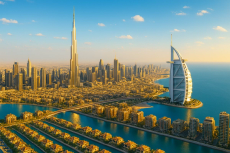




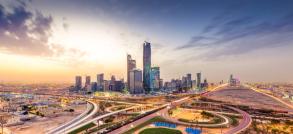
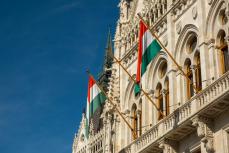
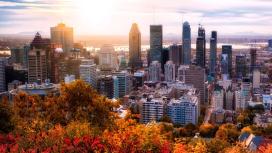
Recently Published

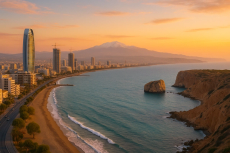







Book a free consultation


